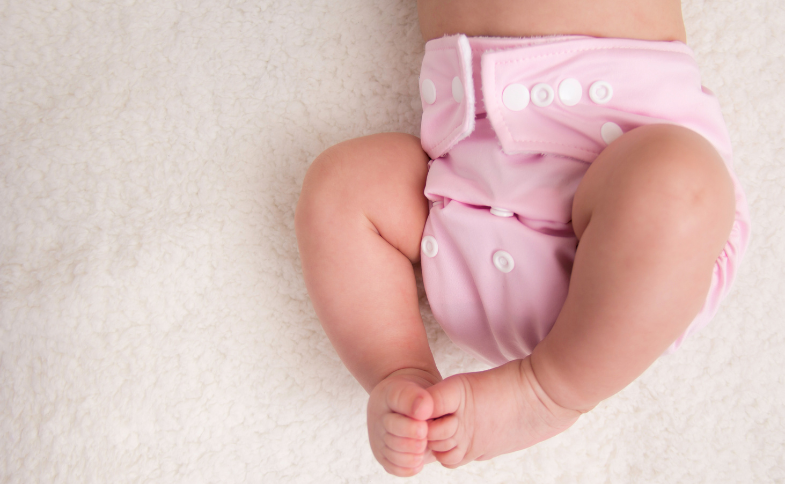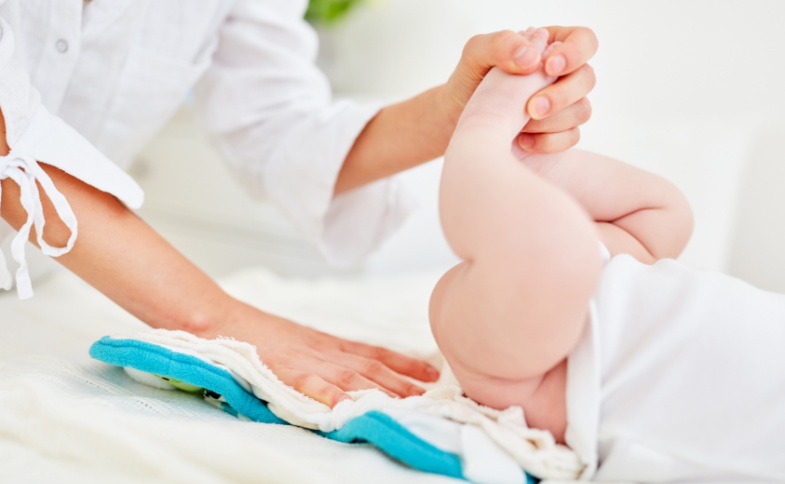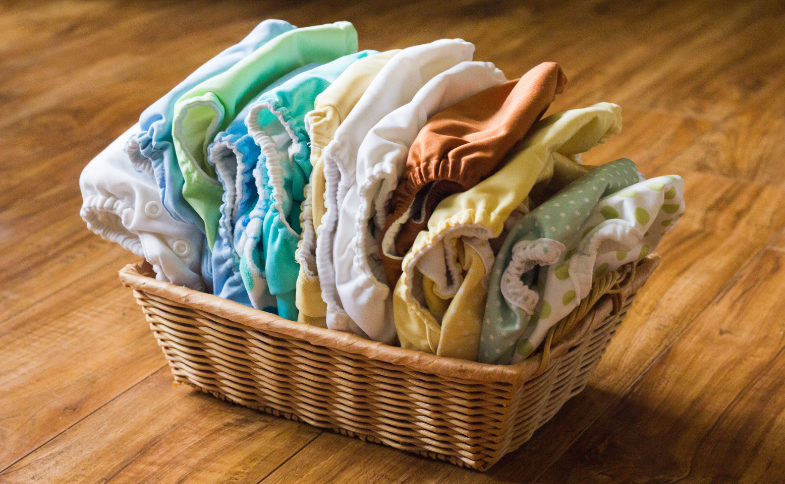The Pros and Cons of Cloth Diapering for New Parents
New parents have to make many decisions concerning their little ones within the first year of life. From what to name the baby, to whether to breastfeed or bottlefeed, to whether to use cloth diapers or not. What’s worse, all these decisions have far-reaching effects, so it is very important to think carefully about them before making them.
Cloth diapering has been becoming more and more popular among new parents in recent years. This isn’t surprising, because it does offer a lot of benefits over disposable diapers. However, cloth diapers are not without several drawbacks. In this guide, we will explore the pros and cons of cloth diapering and whether or not they are the right fit for you and your little one. We’ll also cover how to choose the right cloth diaper and how to care for them properly.
Let’s dive right in, shall we?

What is Cloth Diapering?
Cloth diapering simply means using reusable fabric diapers instead of disposable ones for your little one. These diapers can be made of a variety of materials, including cotton, bamboo, hemp, and so on. They come in different styles, including pre-folded, fitted, pocketed, and all-in-one cloth diapers.
Cloth diapering has been shown to have numerous benefits over disposable diapers. It is a cost-effective practice and very environmentally friendly. Plus, cloth diapers can be gentler on babies' sensitive skin than disposable diapers.
Benefits of Cloth Diapering
There are many benefits of using cloth diapers. Some of the most significant advantages include:
- They are cost-effective in the long run
Cloth diapers may have a higher initial cost, but they are more cost-effective in the long run. Studies show that the average baby will go through between 6000-8000 diapers before they are potty-trained. At an average cost of $0.20 per disposable diaper, this can add up to $1,200. On the other hand, cloth diapers can be used across multiple children, and the cost can be as low as $300 for a full set.
- They are environmentally friendly
Disposable diapers take about 500 years to decompose in a landfill. According to Heal The Planet, over 18 billion disposable diapers end up in landfills each year. This translates to 3.5 million tons of waste every year. Cloth diapers, on the other hand, are reusable and can be used for multiple children, reducing the amount of waste in landfills.
- There is a wide variety of options available
There is a wide variety of cloth diapers available on the market, which allows parents to find the perfect fit for their baby. From pre-fold to pocket, to all-in-one and even fitted diapers, there are options for every budget and preference.
- Better for baby's sensitive skin
Cloth diapers are often made from natural fibers such as cotton, bamboo, and hemp, which are gentler on babies' sensitive skin. Additionally, they also allow for better air circulation, reducing the risk of diaper rash.
- Can be used as a potty training tool
Cloth diapers also have the added benefit of being a potty-training tool. Because they are more visible when wet, they can help children understand when they need to go to the bathroom.

Downsides of Cloth Diapering
While cloth diapering has many benefits, there are also some drawbacks to consider. Some of the most significant disadvantages include:
- The initial cost can be high
The initial cost of cloth diapering can be high, especially if you choose to purchase a complete set of cloth diapers. However, it's important to remember that this cost will be recouped over time as you will not have to continue buying them like you would disposable diapers.
- Cloth diapering requires more laundry and maintenance
It requires more laundry and maintenance compared to disposable diapers. They need to be washed and dried after every use, and some types may require special care or extra steps such as using a diaper sprayer or lining. This can be a significant inconvenience for some parents, especially those who are already short on time.
- May not be as convenient as disposable diapers
There are many reasons why cloth diapers may not be as convenient as disposable diapers. They take up more space, and you need to have a fresh set of diapers on hand at all times. This can be especially challenging for parents who are on the go, as they may not have access to a washing machine or dryer.
- May not be accepted in daycare or public facilities
Some daycare centers and public facilities may not accept cloth diapers. This means that parents will have to bring disposable diapers with them or switch to disposable diapers while their child is in daycare.

How to Choose the Right Cloth Diaper
With so many options available, it can be difficult to choose the perfect cloth diapering option for your little one. Well, here are some factors to consider when making your decision:
- Types of cloth diapers
There are 4 main types of cloth diapers:
- Pre-fold: The most basic and economical option. They come pre-folded.
- Fitted: Contoured to fit your baby's shape and have snaps or Velcro closures
- Pocket: Have an outer layer and an inner layer, with a pocket in between to hold an absorbent insert
- All-in-one: These are the most similar to disposable diapers, as they have everything you need in one piece.
You want to go for the type that will best suit your lifestyle and budget.
- Absorbency: Make sure the diapers you choose are absorbent enough for your baby
- Fit: Ensure they fit well to prevent leaks
- Ease of use: How easy is it to use them? Some types of diapers may require extra steps or special care
- Durability: They should be durable enough to withstand multiple washes
How to Care for Cloth Diapers
Proper care is crucial to ensure that your cloth diapers last as long as possible. Most cloth diapers will come with care instructions. Make sure to wash them according to the manufacturer's instructions, following them as closely as you can.
When washing your cloth diapers, always use detergents that are free of fragrances, enzymes, and brighteners. Also, avoid using fabric softeners, as they can reduce the absorbency of the diapers.
Final Thoughts
Cloth diapering is becoming more and more popular among new parents because it offers several benefits over disposable diapers. As we have seen, they are cost-effective, environmentally friendly, and gentler on babies' sensitive skin.
However, it's not without its drawbacks, such as the initial cost, the need for more laundry and maintenance, and the fact that it may not be as convenient as disposable diapers. Parents should consider all these pros and cons before deciding on whether or not to use disposable diapers.
Whatever option you choose to go for, we hope that this guide has given you enough insight into what cloth diapers are about to help you make the right decision for you and your kiddo. Good luck!